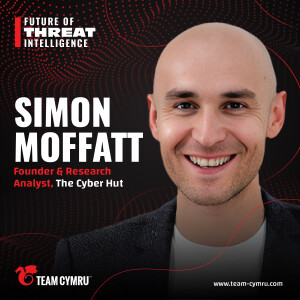
Thursday Jan 23, 2025
The Cyber Hut's Simon Moffatt on Transforming Identity Security from Static to Dynamic Defense
David steps into the new world of identity security with Simon Moffatt, Founder & Research Analyst at The Cyber Hut, on the latest episode of The Future of Threat Intelligence. With over two decades of experience, Simon illuminates the dramatic transformation from static directory management to dynamic, threat-informed security architecture. He walks through the challenges of modern identity security, exploring how cloud computing, remote work, and the rise of non-human identities are reshaping our approach to access management.
Simon shares invaluable insights on building adaptive security systems that can respond in real time to emerging threats while balancing usability and privacy concerns. From passwordless authentication to AI-driven security controls, discover how organizations can move beyond traditional static defenses to create more resilient security architectures for an increasingly complex digital landscape.
Topics discussed:
- The evolution of identity security from static directory management to dynamic, adaptive systems responding to real-time threat intelligence and behavioral analysis.
- Misconceptions about identity threat intelligence and the importance of moving from static protections to dynamic, responsive security controls.
- The intersection of zero trust architecture with identity security principles and how both concepts transcend individual product implementations.
- Emerging trends in non-human identity management, including API security, workload identity, and infrastructure automation authentication challenges.
- Implementation of adaptive access controls that can make fine-grained security decisions based on real-time context and behavioral analysis.
- Balancing privacy considerations with the need for comprehensive security monitoring and threat intelligence sharing across organizations.
- The rise of passwordless authentication and its impact on both security posture and user experience in modern digital environments.
- Strategies for understanding and mapping your complete identity landscape, including human and non-human identities across cloud and on-premises systems.
- The importance of runtime behavior monitoring and real-time intervention capabilities in modern identity security architectures.
- Practical approaches to implementing threat-informed defense strategies while maintaining operational efficiency and user productivity.
Key Takeaways:
- Map your complete identity landscape across cloud and on-prem environments to establish a comprehensive visibility baseline for both human and non-human identities.
- Implement adaptive authentication controls that can dynamically adjust access permissions based on real-time context and behavioral analysis.
- Deploy passwordless authentication solutions to enhance both security posture and user experience while eliminating password-related vulnerabilities.
- Establish robust authentication mechanisms for non-human identities, including API credentials, service accounts, and infrastructure automation tools.
- Design fine-grained access controls that can respond to contextual changes by adjusting permissions in real-time rather than simply terminating sessions.
- Integrate threat intelligence feeds with identity security controls to enable dynamic, threat-informed defensive responses.
- Develop privacy-preserving methods for sharing threat intelligence across organizations while maintaining competitive boundaries and regulatory compliance.
- Build resilient identity architectures that assume breach scenarios and focus on rapid detection and response capabilities.
- Monitor runtime behaviors of both human and non-human identities to establish baseline patterns and detect anomalous activities.
- Create surgical, precise security controls informed by sector-specific threats and actual attack patterns targeting your industry.
No comments yet. Be the first to say something!